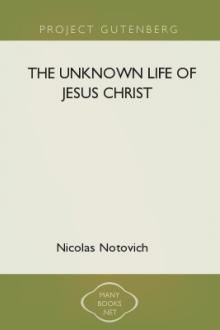The Story of My Life - Helen Keller (top rated ebook readers .txt) 📗

- Author: Helen Keller
- Performer: 0140439153
Book online «The Story of My Life - Helen Keller (top rated ebook readers .txt) 📗». Author Helen Keller
Just before the Perkins Institution closed for the summer, it was arranged that my teacher and I should spend our vacation at Brewster, on Cape Cod, with our dear friend, Mrs. Hopkins. I was delighted, for my mind was full of the prospective joys and of the wonderful stories I had heard about the sea.
My most vivid recollection of that summer is the ocean. I had always lived far inland and had never had so much as a whiff of salt air; but I had read in a big book called “Our World” a description of the ocean which filled me with wonder and an intense longing to touch the mighty sea and feel it roar. So my little heart leaped high with eager excitement when I knew that my wish was at last to be realized.
No sooner had I been helped into my bathing-suit than I sprang out upon the warm sand and without thought of fear plunged into the cool water. I felt the great billows rock and sink. The buoyant motion of the water filled me with an exquisite, quivering joy. Suddenly my ecstasy gave place to terror; for my foot struck against a rock and the next instant there was a rush of water over my head. I thrust out my hands to grasp some support, I clutched at the water and at the seaweed which the waves tossed in my face. But all my frantic efforts were in vain.
The waves seemed to be playing a game with me, and tossed me from one to another in their wild frolic. It was fearful! The good, firm earth had slipped from my feet, and everything seemed shut out from this strange, all-enveloping element—life, air, warmth and love. At last, however, the sea, as if weary of its new toy, threw me back on the shore, and in another instant I was clasped in my teacher’s arms. Oh, the comfort of the long, tender embrace! As soon as I had recovered from my panic sufficiently to say anything, I demanded: “Who put salt in the water?”
After I had recovered from my first experience in the water, I thought it great fun to sit on a big rock in my bathing-suit and feel wave after wave dash against the rock, sending up a shower of spray which quite covered me. I felt the pebbles rattling as the waves threw their ponderous weight against the shore; the whole beach seemed racked by their terrific onset, and the air throbbed with their pulsations. The breakers would swoop back to gather themselves for a mightier leap, and I clung to the rock, tense, fascinated, as I felt the dash and roar of the rushing sea!
I could never stay long enough on the shore. The tang of the untainted, fresh and free sea air was like a cool, quieting thought, and the shells and pebbles and the seaweed with tiny living creatures attached to it never lost their fascination for me. One day Miss Sullivan attracted my attention to a strange object which she had captured basking in the shallow water. It was a great horseshoe crab—the first one I had ever seen. I felt of him and thought it very strange that he should carry his house on his back. It suddenly occurred to me that he might make a delightful pet; so I seized him by the tail with both hands and carried him home. This feat pleased me highly, as his body was very heavy, and it took all my strength to drag him half a mile.
I would not leave Miss Sullivan in peace until she had put the crab in a trough near the well where I was confident he would be secure. But next morning I went to the trough, and lo, he had disappeared! Nobody knew where he had gone, or how he had escaped. My disappointment was bitter at the time; but little by little I came to realize that it was not kind or wise to force this poor dumb creature out of his element, and after awhile I felt happy in the thought that perhaps he had returned to the sea.
In the autumn I returned to my Southern home with a heart full of joyous memories. As I recall that visit North I am filled with wonder at the richness and variety of the experiences that cluster about it. It seems to have been the beginning of everything. The treasures of a new, beautiful world were laid at my feet, and I took in pleasure and information at every turn. I lived myself into all things. I was never still a moment; my life was as full of motion as those little insects that crowd a whole existence into one brief day. I met many people who talked with me by spelling into my hand, and thought in joyous sympathy leaped up to meet thought, and behold, a miracle had been wrought! The barren places between my mind and the minds of others blossomed like the rose.
I spent the autumn months with my family at our summer cottage, on a mountain about fourteen miles from Tuscumbia. It was called Fern Quarry, because near it there was a limestone quarry, long since abandoned. Three frolicsome little streams ran through it from springs in the rocks above, leaping here and tumbling there in laughing cascades wherever the rocks tried to bar their way.
The opening was filled with ferns which completely covered the beds of limestone and in places hid the streams. The rest of the mountain was thickly wooded. Here were great oaks and splendid evergreens with trunks like mossy pillars, from the branches of which hung garlands of ivy and mistletoe, and persimmon trees, the odour of which pervaded every nook and corner of the wood—an illusive, fragrant something that made the heart glad. In places the wild muscadine and scuppernong vines stretched from tree to tree, making arbours which were always full of butterflies and buzzing insects. It was delightful to lose ourselves in the green hollows of that tangled wood in the late afternoon, and to smell the cool, delicious odours that came up from the earth at the close of day.
Our cottage was a sort of rough camp, beautifully situated on the top of the mountain among oaks and pines. The small rooms were arranged on each side of a long open hall. Round the house was a wide piazza, where the mountain winds blew, sweet with all wood-scents. We lived on the piazza most of the time—there we worked, ate and played. At the back door there was a great butternut tree, round which the steps had been built, and in front the trees stood so close that I could touch them and feel the wind shake their branches, or the leaves twirl downward in the autumn blast.
Many visitors came to Fern Quarry. In the evening, by the campfire, the men played cards and whiled away the hours in talk and sport. They told stories of their wonderful feats with fowl, fish and quadruped—how many wild ducks and turkeys they had shot, what “savage trout” they had caught, and how they had bagged the craftiest foxes, outwitted the most clever ‘possums and overtaken the fleetest deer, until I thought that surely the lion, the tiger, the bear and the rest of the wild tribe would not be able to stand before these wily hunters. “Tomorrow to the chase!” was their good-night shout as the circle of merry friends broke up for the night. The men slept in the hall outside our door, and I could feel the deep breathing of the dogs and the hunters as they lay on their improvised beds.
At dawn I was awakened by the smell of coffee, the rattling of guns, and the heavy footsteps of the men as they strode about, promising themselves the greatest luck of the season. I could also feel the stamping of the horses, which they had ridden out from town and hitched under the trees, where they stood all night, neighing loudly, impatient to be off. At last the men mounted, and, as they say in the old songs, away went the steeds with bridles ringing and whips cracking and hounds racing ahead, and away went the champion hunters “with hark and whoop and wild halloo!”
Later in the morning we made preparations for a barbecue. A fire was kindled at the bottom of a deep hole in the ground, big sticks were laid crosswise at the top, and meat was hung from them and turned on spits. Around the fire squatted negroes, driving away the flies with long branches. The savoury odour of the meat made me hungry long before the tables were set.
When the bustle and excitement of preparation was at its height, the hunting party made its appearance, struggling in by twos and threes, the men hot and weary, the horses covered with foam, and the jaded hounds panting and dejected—and not a single kill!
Every man declared that he had seen at least one deer, and that the animal had come very close; but however hotly the dogs might pursue the game, however well the guns might be aimed, at the snap of the trigger there was not a deer in sight. They had been as fortunate as the little boy who said he came very near seeing a rabbit—he saw his tracks. The party soon forgot its disappointment, however, and we sat down, not to venison, but to a tamer feast of veal and roast pig.
One summer I had my pony at Fern Quarry. I called him Black Beauty, as I had just read the book, and he resembled his namesake in every way, from his glossy black coat to the white star on his forehead. I spent many of my happiest hours on his back. Occasionally, when it was quite safe, my teacher would let go the leading-rein, and the pony sauntered on or stopped at his sweet will to eat grass or nibble the leaves of the trees that grew beside the narrow trail.
On mornings when I did not care for the ride, my teacher and I would start after breakfast for a ramble in the woods, and allow ourselves to get lost amid the trees and vines, with no road to follow except the paths made by cows and horses. Frequently we came upon impassable thickets which forced us to take a round about way. We always returned to the cottage with armfuls of laurel, goldenrod, ferns and gorgeous swamp-flowers such as grow only in the South.
Sometimes I would go with Mildred and my little cousins to gather persimmons. I did not eat them; but I loved their fragrance and enjoyed hunting for them in the leaves and grass. We also went nutting, and I helped them open the chestnut burrs and break the shells of hickory-nuts and walnuts—the big, sweet walnuts!
At the foot of the mountain there was a railroad, and the children watched the trains whiz by. Sometimes a terrific whistle brought us to the steps, and Mildred told me in great excitement that a cow or a horse had strayed on the track. About a mile distant there was a trestle spanning a deep gorge. It was very difficult to walk over, the ties were





Comments (0)